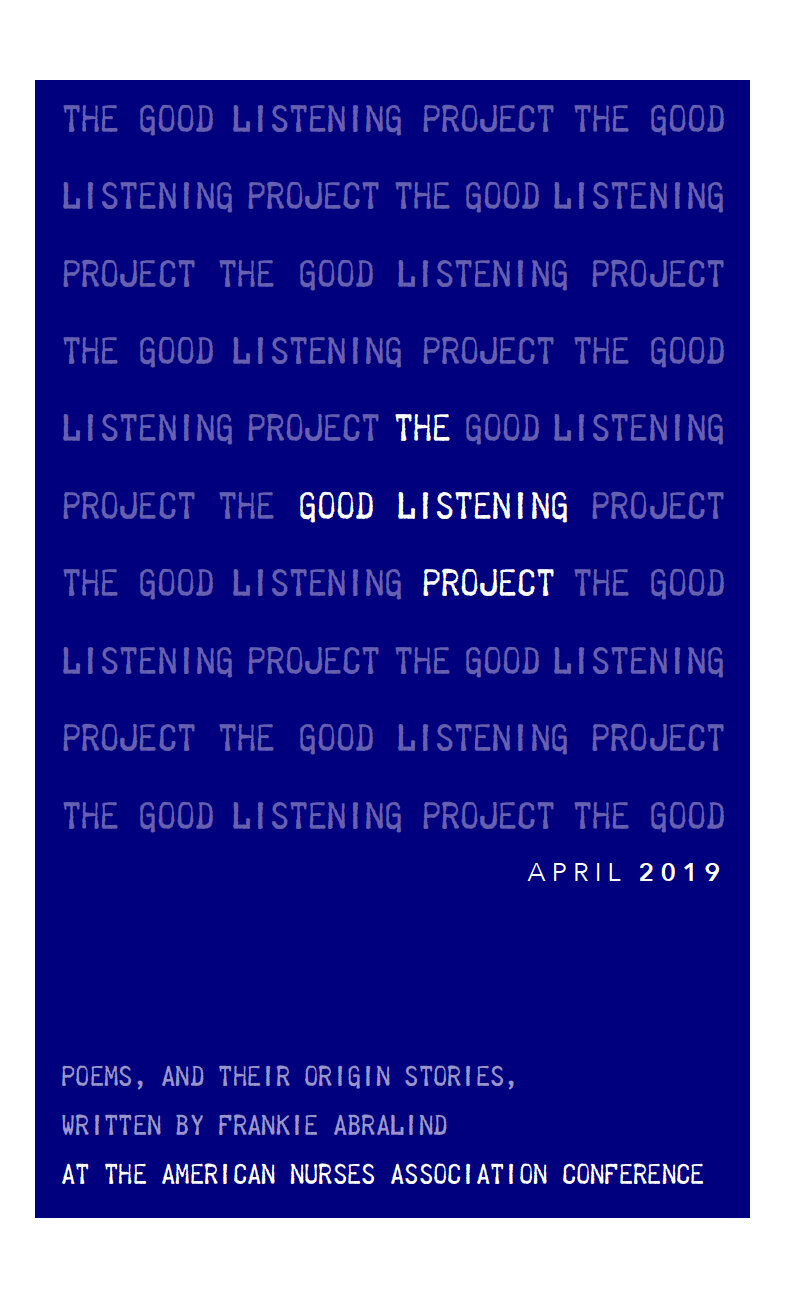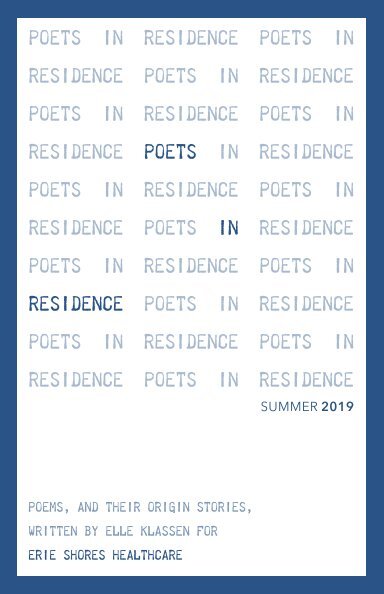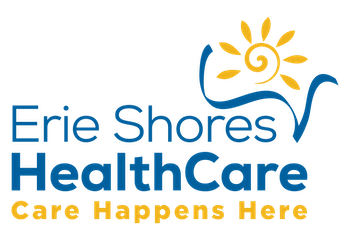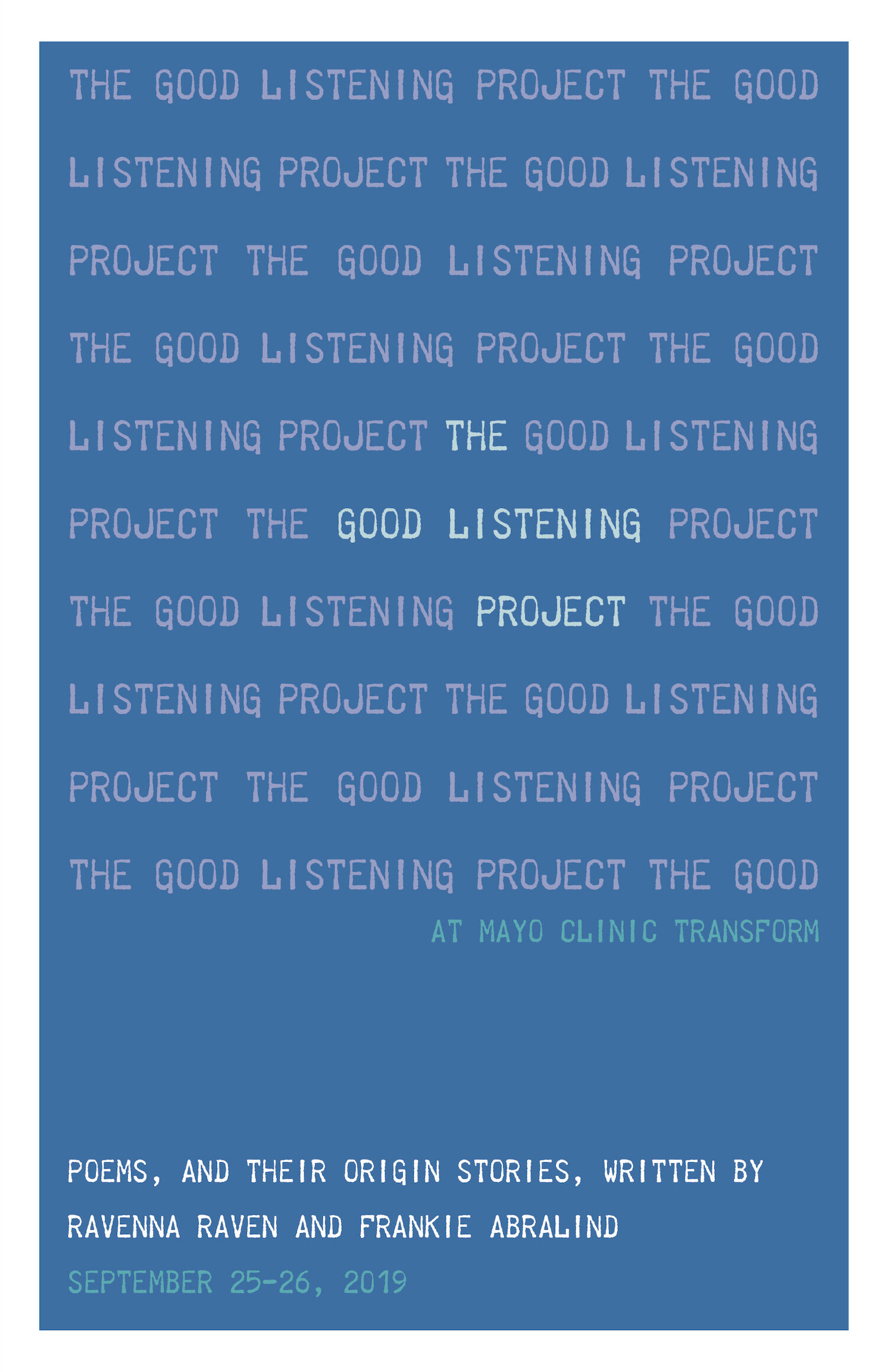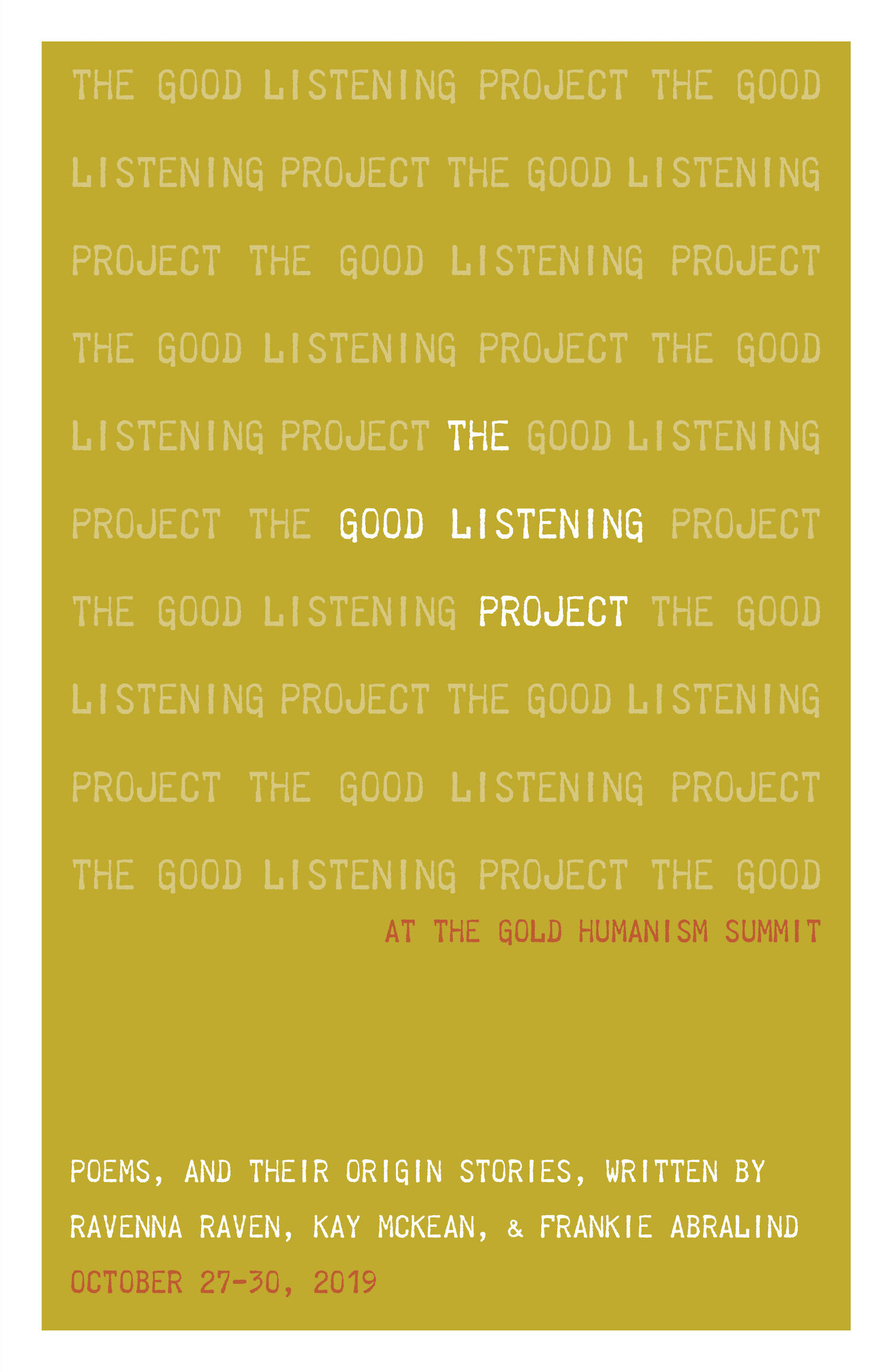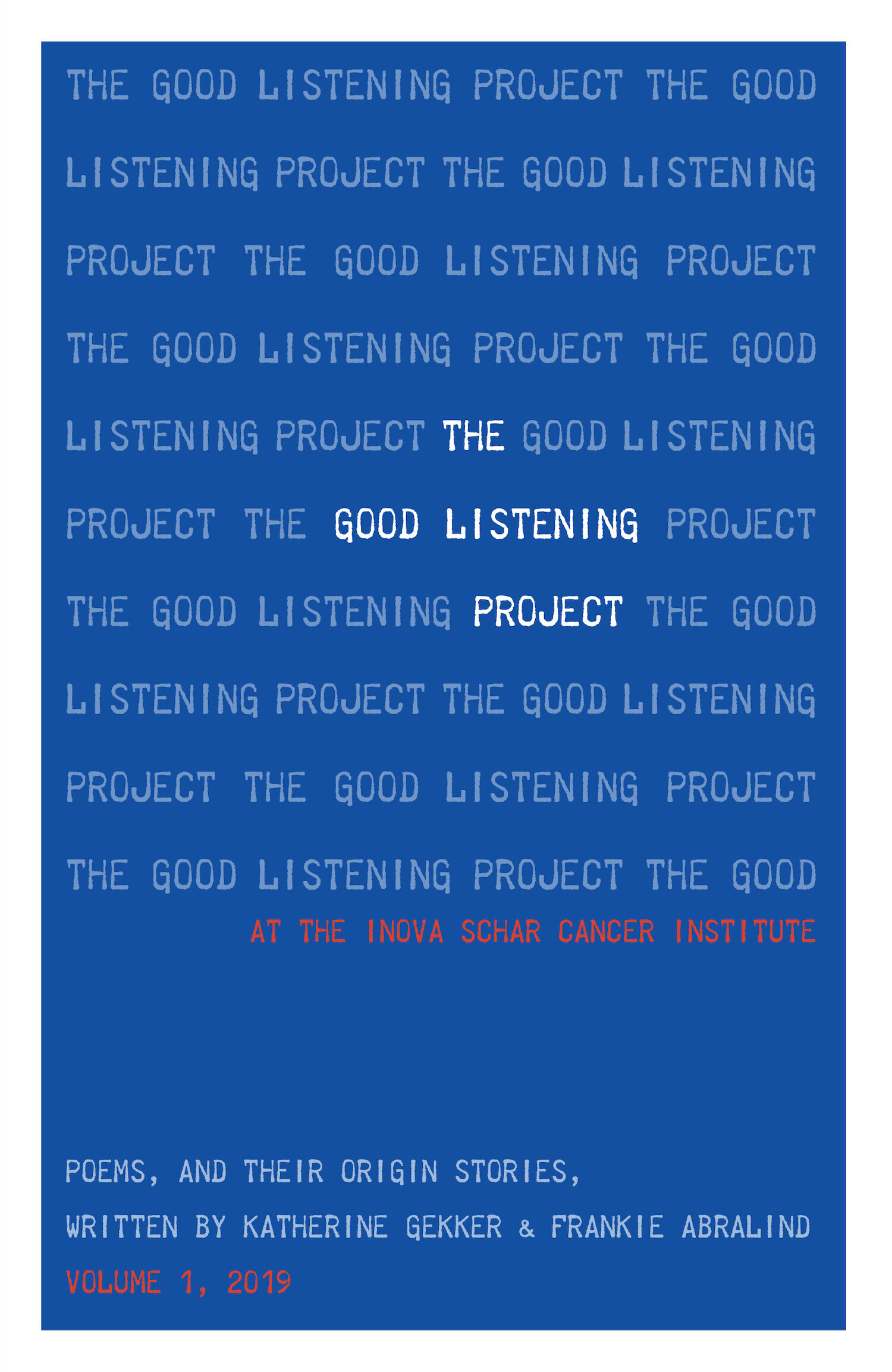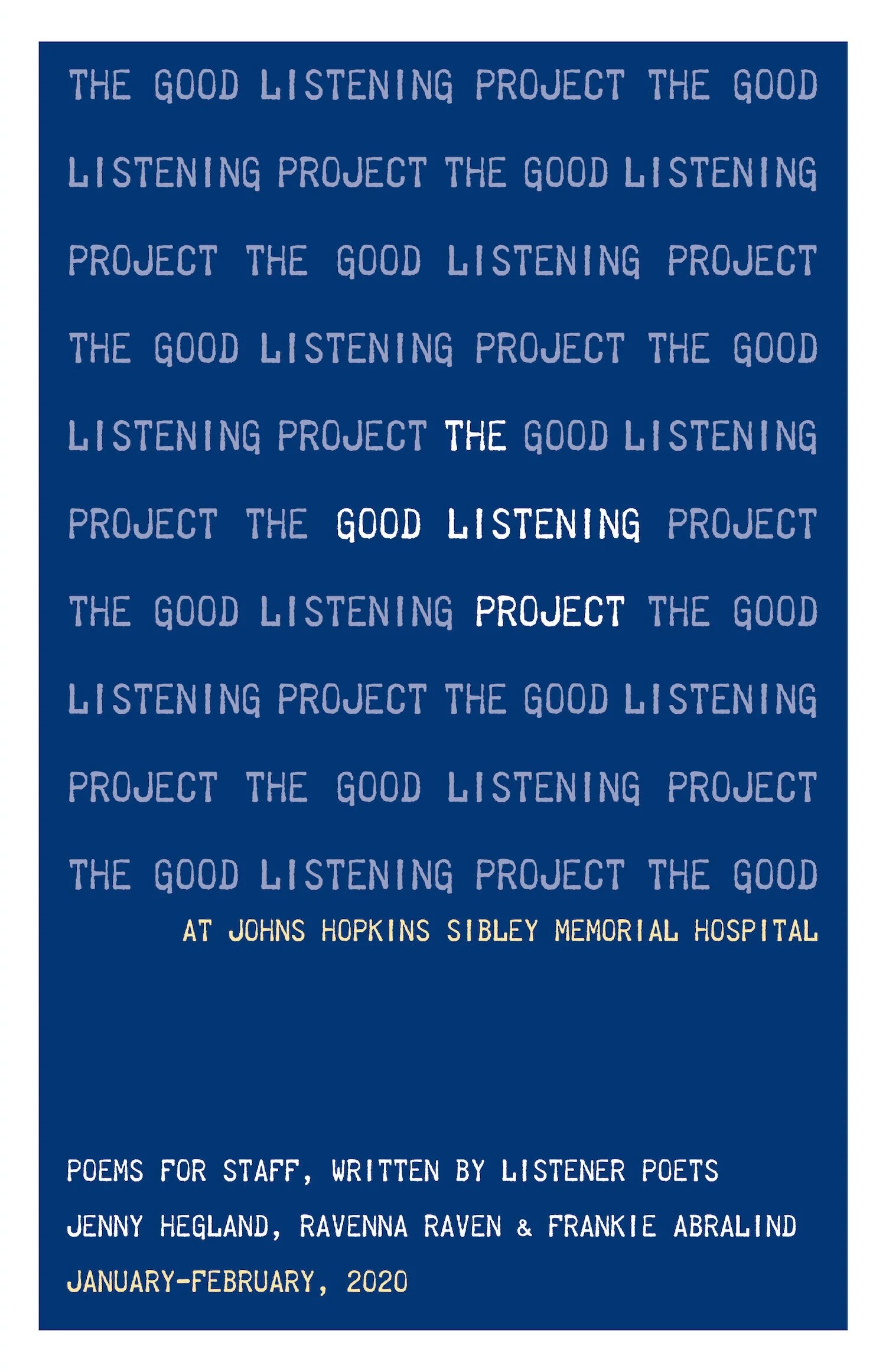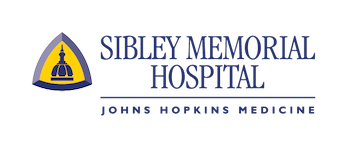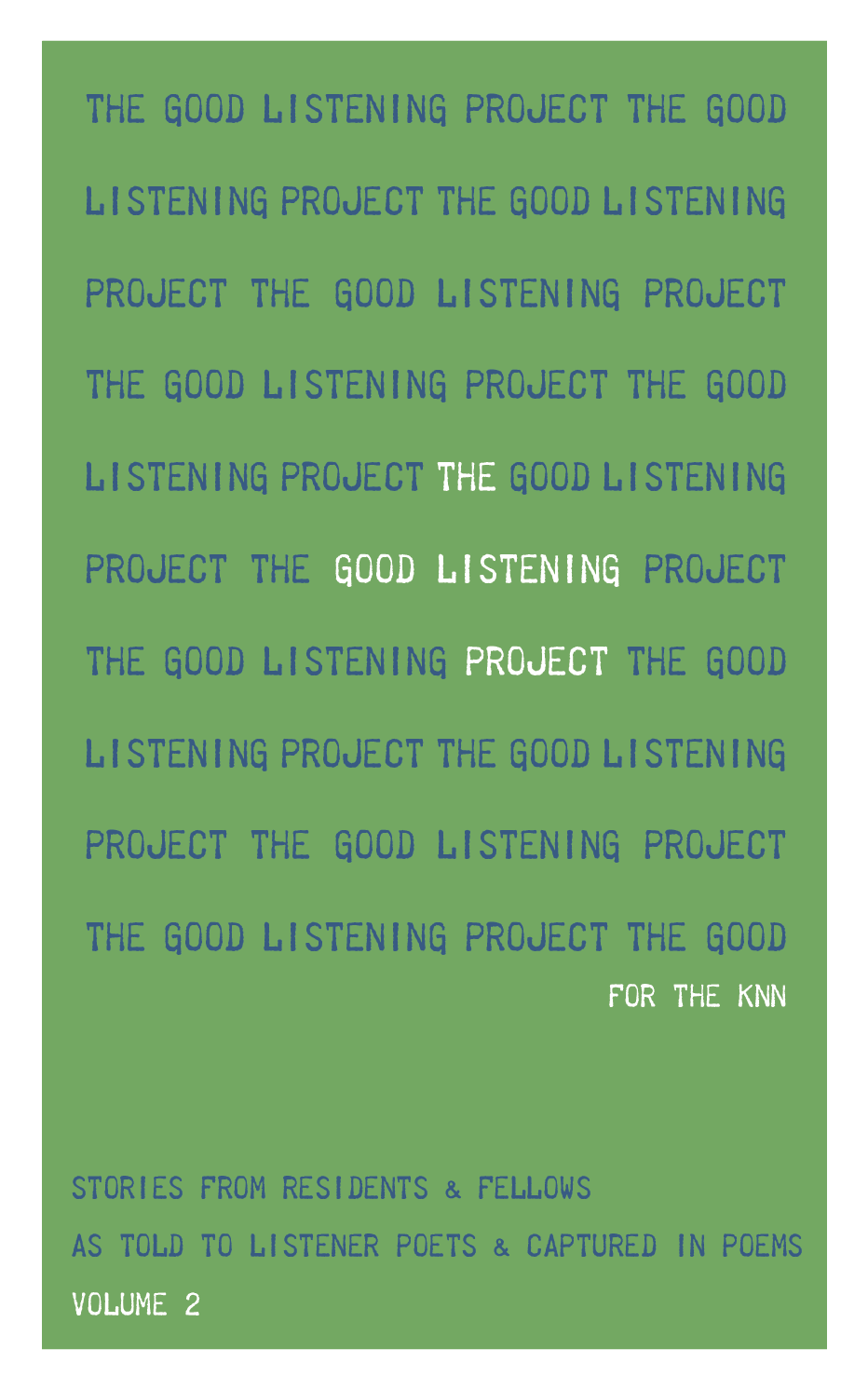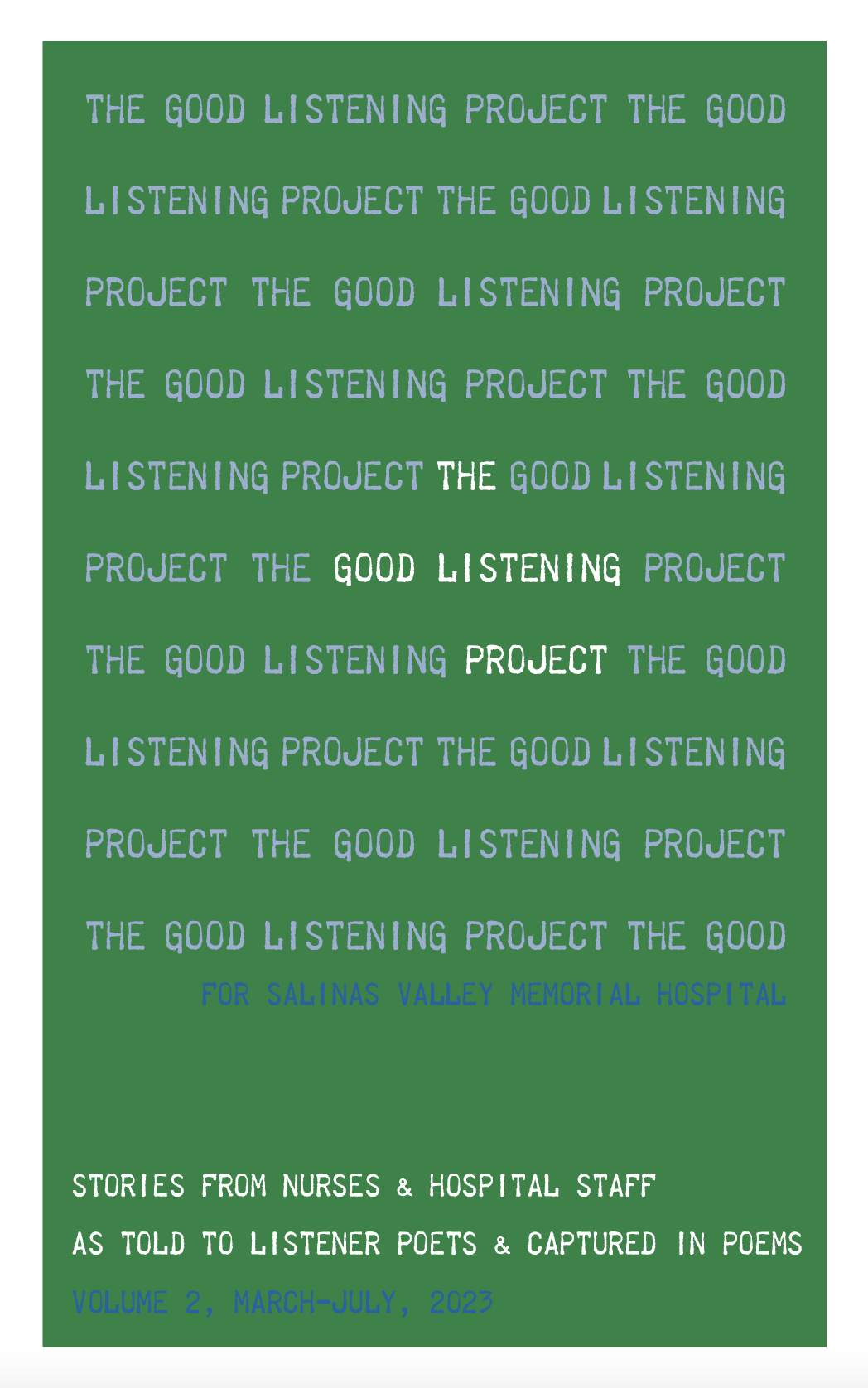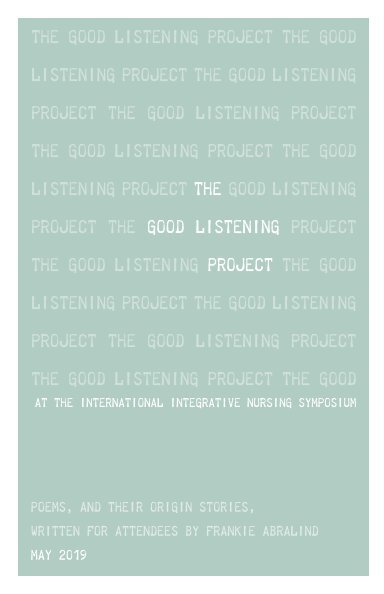Why We Listen

Our Mission
Humanizing healthcare through the healing power of poetry and compassionate presence.
Healing Through Listening and Poetry
The Good Listening Project (TGLP) is a 501(c)(3) nonprofit dedicated to humanizing healthcare through the healing power of poetry and compassionate presence. We create spaces for deep listening and poetic reflection that foster connection, reduce burnout, and promote wellbeing for healthcare professionals, patients, and their communities.
At the heart of our work are Listener Poets, who hold one-on-one listening sessions where individuals can share whatever is on their minds. Each conversation is transformed into a custom poem, a reflection of the person’s story, emotions, and experiences.
Why It Matters
“It was really much more impactful than I expected. I would never have believed it was possible if someone had told me that I’d feel better by doing this – but I do.
I feel heard and validated and that has already gone a long way for me letting go of some of the negative emotions I have been carrying.”
Where We Listen
The Good Listening Project has partnered with over 25 organizations – including premier institutions such as Johns Hopkins and the Mayo Clinic, as well as major academic medical centers, community hospitals, hospice programs, and long-term care facilities.
Who We Listen To
To date, we’ve listened to and written poems for over 3,000 individuals across the healthcare landscape – from nurses and doctors to chaplains, educators, and hospital leaders.
The Measurable Impact of Listening
The impact of our programs is both experiential and measurable, contributing to improved emotional health and workplace dynamics.
Listener Poet sessions and creative reflection initiatives have been shown to:
Support emotional regulation and thoughtful processing
Foster a sense of being seen, heard, and valued
Reduce isolation and stress in high-pressure environments
Strengthen workplace culture through empathy and shared humanity
Across hospitals, clinics, and community care spaces, our work integrates poetry and presence into the fabric of care. From curated poem collections and reflective story-listening workshops to immersive creative installations, each project demonstrates how listening becomes a powerful clinical and cultural intervention.
These real-world initiatives uplift marginalized voices, ease burnout, and cultivate environments where healing conversations can take root – helping caregivers reconnect with purpose, each other, and themselves.
Explore the Portfolio of Impact to see listening in action.
Explore Our Work
Each poem honors the diverse experiences and emotions shared within the healthcare community.
This poemee wanted to leave a legacy of doing good in this world. Although at times she becomes discouraged about the inequalities in the world, she is determined to do her part by making sure everyone has access to quality healthcare.
This person radiated gratitude and hope. She shared that she discovered she was expecting a son just before receiving a lung cancer diagnosis at the age of 31. Despite the challenges, she expressed profound gratitude for living in a human body and reflected on her transformative journey of self-discovery.
She had an epiphany as a child — that love could heal the world. Now, as a seasoned physician, there’s still a part of her that believes in the power of love, but not with the same idealism she once held.
This person is a neurologist of Romanian descent, in practice in the U.S. for 19 years, who draws inspiration from writers in his heritage. In his writing and work, he seeks to create a safe harbor for humanness while navigating the labyrinths of medicine to reach the essence of the humanity of his patients – even if all they want is a diagnosis or cure.
This poemee wanted to share her experience as a surgical resident, offering insight into the traditions that define this unique culture: the relentless pressure to succeed, the deference to those in higher positions, and the often-cold interactions that accompany a field-wide drive for speed and efficiency.
This new physician was looking forward to starting her OB/GYN residency. Her original goal in undergraduate school was physician assistant studies. But a series of experiences led her to consider a different path: medical school.
“I was at a birth recently and thought: This is why they are so afraid of us. They can’t control this” She sat on her couch with a mug of coffee. She is a queer, femme, mother of two who has worked in reproductive health for over two decades, first in abortion care and now as a doula for all, including queer and non-binary families, through the pregnancy spectrum. She has personally experienced birth, miscarriage, hysterectomy and surgical menopause.
A teenage cancer survivor, this poemee shared how she learned from the younger children she witnessed undergoing the same treatment she was. “You just see a difference in the way a child approaches it,” she said. “They have the moment, they have the pain, they have the shot, and then they just go back to playing. I always took strength from the way little kids would handle it.”
Conversation with Kimako Desvignes DNP, RN, Associate Director of Oncology with almost 30 years of experience in medicine, was an emotional journey through a history of social injustice and racial discrimination—a reflection on ancestry at times through shared tears. Henrietta Lacks’ story had a powerful impact on us both.
“Sometimes I feel so helpless,” said this resident, reflecting on all of the challenges faced by the young patients and their families whom she served. Over the last several days, she has become increasingly overwhelmed by events in the news and has questioned her ability to make a difference in the world.
“It’s hard to watch the decline and sometimes hard to visit but it weighs on me not to,” she said. Her father had always been an elaborate storyteller and an alive, vibrant man with a big voice.
The Good Listening Project was honored to once again take part in the annual KNN conference in Minneapolis this year. Jenny closed the session by writing this harvest poem that captured the voices and sentiments shared.
After a history of crippling endometriosis, this woman had an arduous, ongoing struggle with her healthcare community for the right to have a hysterectomy. She was finally granted approval at the age of 29. “It had been like pulling teeth, but finally I felt free,” she told me.
Her childhood was infused with Hawaiian-Polynesian music and dance, taught to her father by his mother. Today, her life’s work is to connect the unbelievable discoveries of molecularly focused pre-clinical research directly to the patient experience of treatment.
She is a single mother born to a single mother and had to grow up fast. She is juggling a sticky work situation, her own anxiety and depression, and being away from home and her kids.
Instead of the usual Listener Poet format – listening to one person’s story and responding with a framing narrative and custom poem – I was invited to create a group poem for forty participants at the Arts in Healing luncheon, hosted by the Inova Health Foundation in partnership with the board.
What does it mean for people living with Sickle Cell Disease to be seen, heard, and understood? For this person, it meant finding – and using – her voice to advocate for herself and for others.
“I’ve experienced a lot of big losses,” she said. “I want to be a beacon of hope and light, keeping the flame lit for cancer prevention.”
Professionally, for this person, Henrietta Lacks’ story represents the need to critically examine our research infrastructure. “Private companies benefit from publicly-funded research without a requirement to give back to ensure the viability of future research.”
“The fact of my life is a miracle,” she told me. Living with multiple chronic illnesses, this patient spoke to me of her journey with alopecia. Of how, in witnessing her body transformed by the condition, she continues to move at once through grief and reclamation.
“I can’t see a future outside of our relationship,” she tells me, “but I also can’t see a future outside of residency.”
“I always believe, no matter what the doctor says, that I will be cured,” she says as her sister sits next to her.
“I wonder if these medical professionals, in caring for people who face such insurmountable odds, walk around all the time carrying this weight I’m hauling now.”
He had been trying to cope with the grief ever since and was on a quest for soul-searching and meaning-making.
She spoke about the ways this traumatic event shaped who she is today: a person with an “unshakeable peace” born of deep faith,
She wanted to help people feel comfortable and transform the shame around colon issues. "I want to talk about things that matter, the things people don't want to discuss.
Learn More
If you’re a healthcare leader seeking innovative ways to support wellness in your organization, we’d be glad to connect.
Schedule a Conversation
Schedule a time to learn more about how listening and poetry can strengthen well-being across your community.
Support Good Listening
Want to bring good listening to your healthcare community? Connect with us – we’d love to hear from you.

